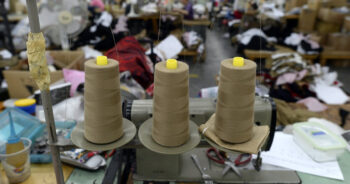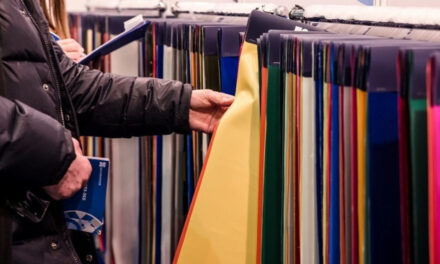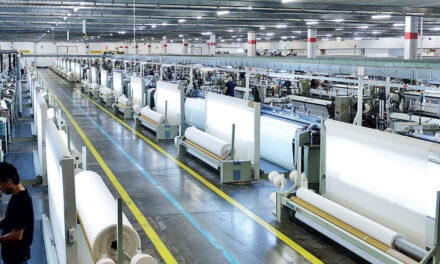 Indian garment manufacturers and exporters are under pressure due to reduced demand amid global economic challenges. Domestic brands and retailers are seeking extra discounts on orders placed previously, a practice the manufacturers deem unethical. International brands are also pressuring Indian exporters to reduce garment prices, citing poor demand at their retail stores in the United States and Europe. The exporters, however, are reluctant to drop their prices and are asking for governmental support to navigate these economic issues.
Indian garment manufacturers and exporters are under pressure due to reduced demand amid global economic challenges. Domestic brands and retailers are seeking extra discounts on orders placed previously, a practice the manufacturers deem unethical. International brands are also pressuring Indian exporters to reduce garment prices, citing poor demand at their retail stores in the United States and Europe. The exporters, however, are reluctant to drop their prices and are asking for governmental support to navigate these economic issues.
According to industry sources, garment manufacturers based in Ludhiana are grappling with a financial burden of approximately Rs. 150 cr due to a major domestic brand demanding an extra 5 percent discount. The brand, which placed orders for summer garments in February this year, requested its suppliers to email a debit note for a 5 percent discount to lift consignments. Manufacturers are seeking assistance from the members of parliament in Punjab and officials in the ministries of textiles and MSME to counter this pressure.
Lalit Thukral, a Noida-based exporter and Chairman of the Northern region’s executive committee of the Apparel Export Promotion Council, told, “Such demands for additional discounts are unethical from domestic brands and retailers. It is happening not only in Ludhiana but in the entire north India. Garment manufacturers are already working with low margins. They cannot afford to accept such demands for additional discounts.”
Thukral acknowledged that global brands are also pressuring for lower prices on their orders. The current slow-paced market situation presents significant challenges, particularly for small and medium-sized manufacturers and exporters. Despite the tough conditions, he is optimistic about receiving more orders in the future. He said that the India International Garment Fair (IIGF) for the Spring/Summer 2024 season will take place in Noida from June 26-28, 2023. More than 1,000 exporters are anticipated to participate in the fair. Thukral also noted a positive response from importers and global brands, which he expects will lead to substantial trade enquiries during the fair.
K M Subramanian, President of Tiruppur Exporters Association (TEA) told, “Currently, we are getting limited orders from global buyers, but we are not offering additional discounts to attract buyers.” He argued that garment exporters and manufacturers cannot offer lower prices due to the high cost of production. He noted that the average garment prices are nearly the same as last year when they increased due to a record rise in cotton prices. While cotton prices have since dropped by about half, other production costs have increased.
Subramanian expects that orders for winter garments will arrive in the coming months. He suggested that exporters can meet Christmas supply deadlines, provided they receive orders by the end of July. The current global market conditions are quite challenging; however, he was optimistic about the slightly better domestic demand, which is currently serving as a lifeline for the industry.
The current situation is far from favourable for many exporters and garment manufacturers. Many have had to scale down their production due to a lack of orders from both domestic and global markets. This state of affairs is widespread across the country. Fabric and yarn manufacturers are similarly experiencing reduced demand, compelling them to cut down on production. These challenges are anticipated to persist, driven by high inflation in Europe and the US, and the ongoing military conflict between Russia and Ukraine.
 Indian garment manufacturers and exporters are under pressure due to reduced demand amid global economic challenges. Domestic brands and retailers are seeking extra discounts on orders placed previously, a practice the manufacturers deem unethical. International brands are also pressuring Indian exporters to reduce garment prices, citing poor demand at their retail stores in the United States and Europe. The exporters, however, are reluctant to drop their prices and are asking for governmental support to navigate these economic issues.
Indian garment manufacturers and exporters are under pressure due to reduced demand amid global economic challenges. Domestic brands and retailers are seeking extra discounts on orders placed previously, a practice the manufacturers deem unethical. International brands are also pressuring Indian exporters to reduce garment prices, citing poor demand at their retail stores in the United States and Europe. The exporters, however, are reluctant to drop their prices and are asking for governmental support to navigate these economic issues.

















